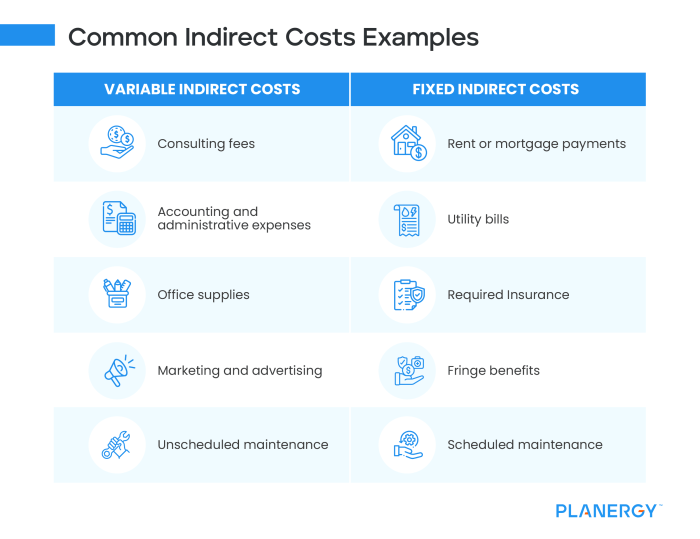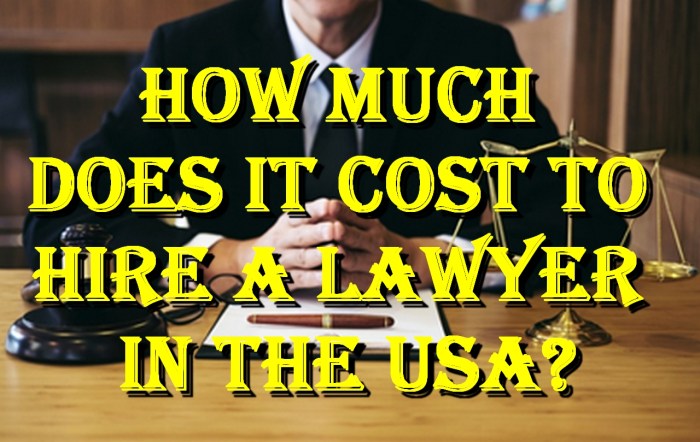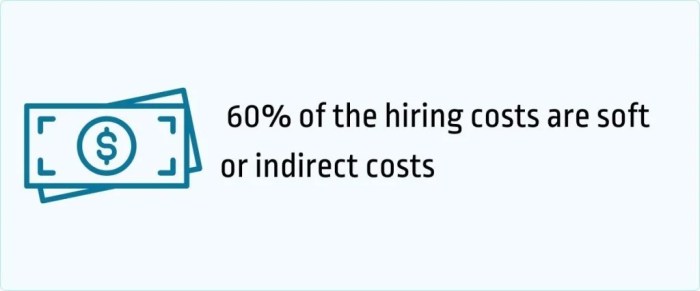What are the indirect costs of hiring a lawyer? This is a question that many businesses and individuals fail to consider when they are faced with a legal issue. While the direct costs of hiring a lawyer, such as legal fees and expenses, are often easy to quantify, the indirect costs can be much more difficult to assess.
These indirect costs can include lost productivity, damage to reputation, and emotional and psychological stress.
In this article, we will explore the various indirect costs of hiring a lawyer and provide tips on how to mitigate these costs. We will also discuss the importance of carefully considering the indirect costs when making the decision of whether or not to hire a lawyer.
Opportunity Costs
Hiring a lawyer entails not only financial expenses but also potential opportunity costs. These are the benefits or opportunities that are foregone as a result of investing time and resources in legal representation.
For instance, individuals may have to take time off work to attend court hearings or meetings with their lawyers, leading to missed work hours and reduced income. Additionally, the emotional and mental strain of dealing with legal matters can divert attention and focus from other important tasks, such as pursuing career advancement or personal projects.
Quantifying Opportunity Costs
Quantifying the financial losses associated with opportunity costs can be challenging, but it is essential for making informed decisions. Consider the following example:
- An individual earns $50 per hour and spends 20 hours per week on legal matters.
- The opportunity cost of hiring a lawyer would be $1,000 per week ($50 x 20 hours).
Over a year, this equates to a potential loss of $52,000 ($1,000 x 52 weeks).
Trade-Offs
It is important to weigh the potential opportunity costs against the potential benefits of pursuing legal action. In some cases, the benefits of obtaining a favorable legal outcome may outweigh the opportunity costs incurred. However, it is crucial to carefully consider these trade-offs before making a decision.
Lost Productivity
Engaging legal counsel inevitably entails a time commitment that can significantly impact employee productivity. Time allocated to consultations, evidence gathering, and court appearances detracts from core work responsibilities.
The ensuing reduction in work hours and potential distractions can lead to a tangible loss of revenue or output. Quantifying this loss requires an assessment of the employee’s role, hourly wage, and the extent of time diverted to legal matters.
Impact on Revenue
For revenue-generating roles, such as sales or business development, lost productivity translates directly into reduced revenue. Each hour spent away from client interactions or lead generation represents a potential loss of revenue.
For example, a sales representative earning $50 per hour who spends 10 hours per week on legal matters could potentially lose $500 in revenue per week.
Impact on Output
In non-revenue-generating roles, lost productivity can manifest as a reduction in output. For instance, a software engineer who spends several hours per week on legal matters may have less time to complete development tasks.
Quantifying this loss requires an assessment of the employee’s usual output and the extent of time diverted to legal matters.
Damage to Reputation
Hiring a lawyer, particularly in high-profile cases or when dealing with sensitive matters, can carry potential reputational risks. Negative publicity or social media backlash can significantly impact a company’s image and customer perception.
In high-profile cases, the media’s scrutiny and public opinion can be relentless. Negative media coverage can portray the company in an unfavorable light, even if the allegations are ultimately proven false. This can damage the company’s reputation and erode customer trust.
Social Media Backlash
Social media has amplified the impact of negative publicity. With the rise of social media platforms, individuals and groups can quickly spread negative information about a company, potentially reaching a vast audience. Social media backlash can result in lost sales, reputational damage, and difficulty attracting new customers.
Legal Fees and Expenses
Hiring a lawyer can involve various fees and expenses, which can significantly impact the overall cost of doing business. Understanding these costs and their potential impact is crucial for budgeting and decision-making.
Retainer Fees and Hourly Rates
Retainer fees are upfront payments that secure an attorney’s services for a specific period or a defined scope of work. Hourly rates are charged for time spent working on the case beyond the retainer amount.
Court Costs and Expert Witness Fees
Court costs include filing fees, service of process, and other expenses associated with the legal proceedings. Expert witness fees compensate individuals brought in to provide specialized knowledge or testimony.
Factors Affecting Legal Fees
The complexity of the case, the experience and reputation of the attorney, and the location of the proceedings are key factors that can influence legal fees. Complex cases require more extensive research and analysis, while experienced attorneys typically charge higher rates.
Emotional and Psychological Stress
Hiring a lawyer can be an emotionally and psychologically taxing experience for both individuals and organizations. The stress of legal proceedings can lead to anxiety, depression, and other mental health issues. It can also affect employee morale, decision-making, and overall well-being.
Impact on Individuals
Individuals involved in legal proceedings may experience feelings of guilt, shame, anger, and fear. They may also worry about the financial and reputational consequences of the case. This stress can lead to difficulty sleeping, eating, and concentrating. It can also make it difficult to maintain relationships and perform well at work.
Impact on Organizations
Legal proceedings can also have a negative impact on organizations. The stress of the case can lead to decreased productivity, absenteeism, and turnover. It can also damage the organization’s reputation and make it difficult to attract and retain customers.In conclusion, the emotional and psychological stress of hiring a lawyer can be significant.
It is important to be aware of these potential effects and to seek support from family, friends, or a mental health professional if needed.
Damage to Relationships

Legal disputes have the potential to damage relationships with clients, partners, or employees. The adversarial nature of legal proceedings can create tension and strain, leading to further complications and costs.
Negative publicity surrounding a legal dispute can also damage relationships and reputation. This can lead to lost business, damaged personal relationships, and a decline in morale.
Mediation and Negotiation
Mediation and negotiation can be effective ways to preserve relationships during legal disputes. These processes allow parties to come together in a neutral setting to discuss their concerns and try to reach a mutually acceptable resolution.
Strategies for Minimizing Damage
- Be mindful of the potential impact of a legal dispute on relationships.
- Consider the use of mediation or negotiation to resolve disputes.
- Be respectful of the other party, even if you disagree with them.
- Keep communication open and honest.
- Seek professional help if necessary.
Time Delays and Missed Deadlines
Engaging a lawyer can introduce time delays and missed deadlines, particularly when legal matters require extensive research, negotiations, or court proceedings. These delays can have significant implications for projects and businesses.
The potential costs associated with delayed projects or missed deadlines include:
- Lost revenue due to delayed product launches or missed business opportunities.
- Increased costs due to overtime, additional resources, or penalties for late delivery.
- Damage to reputation and customer satisfaction due to unmet expectations.
Potential Delays and Missed Deadlines
| Legal Matter | Potential Delay | Real-World Example |
|---|---|---|
| Contract Negotiations | Several weeks or months | A construction project was delayed by two months due to protracted negotiations over a contract with a subcontractor. |
| Litigation | Several months or years | A patent infringement lawsuit delayed the launch of a new product by over a year. |
| Regulatory Compliance | Several weeks or months | A company faced a deadline to comply with new environmental regulations, but legal review and implementation took several months. |
– Discuss how the time and resources allocated to legal matters can divert attention and resources away from other critical business functions, such as research and development, marketing, and customer service.
When businesses are embroiled in legal matters, their focus can shift away from core operations. This diversion of attention and resources can have a significant impact on critical business functions such as research and development, marketing, and customer service. As a result, businesses may fall behind competitors, miss out on new opportunities, and experience a decline in customer satisfaction.
Impact on Research and Development
Research and development (R&D) is essential for businesses to stay competitive and innovative. However, when resources are diverted to legal matters, R&D budgets may be cut or delayed, hindering the development of new products and services. This can lead to lost market share and reduced innovation, ultimately impacting the long-term growth and success of the business.
Impact on Marketing
Marketing is another critical function that can be affected by the diversion of resources to legal matters. When businesses are focused on legal issues, they may have less time and resources to allocate to marketing campaigns, which can lead to a decline in brand awareness and customer engagement.
This can result in lost sales and reduced customer loyalty.
Impact on Customer Service, What are the indirect costs of hiring a lawyer
Customer service is essential for building strong customer relationships and ensuring customer satisfaction. However, when resources are diverted to legal matters, businesses may have to reduce their customer service staff or cut back on training, which can lead to longer wait times, poor customer experiences, and a loss of trust.
Lost Opportunities for Growth: What Are The Indirect Costs Of Hiring A Lawyer
The costs of hiring a lawyer can severely limit a company’s ability to invest in growth opportunities, such as new product development or market expansion. These missed opportunities can have long-term consequences for the company’s competitiveness and profitability.
For example, a company that is embroiled in a legal dispute may be unable to allocate resources to developing a new product that could give it a competitive edge. This can result in the company losing market share to competitors who are able to invest in innovation.
Missed Opportunities for Market Expansion
Similarly, a company that is facing legal challenges may be unable to expand into new markets. This can limit the company’s growth potential and make it more vulnerable to economic downturns.
Legal Malpractice Risks

Hiring a lawyer involves the risk of legal malpractice, which occurs when a lawyer’s errors or negligence cause harm to the client. This can result in significant financial and reputational damage.
Selecting a Qualified Lawyer
To mitigate these risks, it’s crucial to conduct thorough due diligence in selecting a lawyer. Consider their experience, qualifications, reputation, and track record. Check references and read online reviews to gather insights into their competence and professionalism. By choosing a reputable lawyer, you can minimize the likelihood of legal malpractice and protect your interests.
Reputational Damage to Lawyer
Hiring a lawyer with a negative reputation can have significant consequences for a company’s reputation. The lawyer’s reputation can reflect on the company, potentially damaging its image and credibility in the eyes of customers, partners, and the public.When a lawyer has a history of unethical or unprofessional conduct, it can create a perception that the company is also unethical or unprofessional.
This can lead to a loss of trust and confidence in the company, making it difficult to attract new customers, retain existing ones, and build strong relationships with partners.
Importance of Due Diligence
It is crucial for companies to conduct thorough research and consider a lawyer’s track record before making a hiring decision. This involves reviewing the lawyer’s past cases, disciplinary history, and any public information about their reputation. By doing so, companies can minimize the risk of hiring a lawyer who could damage their reputation by association.
Legal Complexity and Uncertainty

Legal matters can often be complex and involve uncertain outcomes. This can lead to a number of challenges and costs for businesses.
One of the main challenges of dealing with complex legal matters is that they can be time-consuming and expensive. Legal proceedings can drag on for months or even years, and the costs of legal fees and other expenses can quickly add up.
Another challenge of dealing with complex legal matters is that they can be difficult to predict. Even the most experienced lawyers cannot always predict how a court will rule on a particular issue. This uncertainty can make it difficult for businesses to plan for the future and make decisions about how to proceed with their legal matters.
Protracted and Expensive Disputes
The complexity and uncertainty of legal proceedings can lead to protracted and expensive disputes. This is because the parties involved may have different interpretations of the law, and it can be difficult to reach a resolution that is acceptable to everyone.
In some cases, disputes can drag on for years, and the costs of legal fees and other expenses can become astronomical. This can put a significant financial strain on businesses, and it can also damage their reputation.
Impact on Employee Morale
The presence of legal disputes and the involvement of lawyers can significantly impact employee morale and job satisfaction. Legal proceedings can create a negative work environment, characterized by anxiety, uncertainty, and distraction, which can adversely affect employee productivity and overall well-being.
For instance, in a recent study conducted by the American Psychological Association, it was found that employees who were involved in legal disputes experienced higher levels of stress, absenteeism, and presenteeism (being physically present at work but not fully engaged or productive).
Mitigating the Negative Impact
HR and management play a crucial role in mitigating the negative impact of legal disputes on employee morale. By providing clear communication, support, and resources, they can help employees navigate the challenges and maintain a positive work environment.
- Open Communication:HR and management should keep employees informed about the legal proceedings and their potential impact on the organization and individual employees. This transparency helps reduce uncertainty and anxiety.
- Employee Support:Providing access to counseling, employee assistance programs, and legal advice can help employees cope with the emotional and psychological stress associated with legal disputes.
- Focus on Employee Well-being:HR and management should prioritize employee well-being by creating a supportive and inclusive work environment. This can include offering flexible work arrangements, providing opportunities for stress management, and fostering a culture of empathy and understanding.
Ethical and Compliance Costs
Hiring a lawyer can entail potential ethical and compliance costs, particularly when dealing with sensitive or high-stakes legal matters. It is crucial to ensure that the lawyer’s actions align with the company’s ethical values and legal obligations to avoid reputational damage and financial consequences.
Unethical or illegal actions by the lawyer can damage the company’s reputation, leading to loss of trust among customers and stakeholders. This can result in a decline in revenue and damage to the company’s brand.
Financial Costs
- Fines and penalties for violations of ethical or legal standards.
- Legal fees and expenses incurred in defending against allegations of unethical or illegal conduct.
Impact on Employee Morale and Customer Trust
- Employees may lose trust in the company if they perceive it to be engaging in unethical or illegal practices.
- Customers may be reluctant to do business with a company that is perceived to be unethical or untrustworthy.
Closing Summary
Hiring a lawyer can be a costly decision, but it is important to consider the indirect costs as well as the direct costs when making this decision. By understanding the potential indirect costs, you can make an informed decision about whether or not to hire a lawyer and how to mitigate these costs.
FAQ Compilation
What are the most common indirect costs of hiring a lawyer?
The most common indirect costs of hiring a lawyer include lost productivity, damage to reputation, and emotional and psychological stress.
How can I mitigate the indirect costs of hiring a lawyer?
There are a number of things you can do to mitigate the indirect costs of hiring a lawyer. These include:
- Choosing a lawyer who is experienced and qualified in the area of law that you need assistance with.
- Getting a clear understanding of the fees and expenses involved before hiring a lawyer.
- Communicating regularly with your lawyer to stay informed about the progress of your case.
- Being prepared to provide your lawyer with all of the information and documentation that they need.
- Following your lawyer’s advice and instructions.